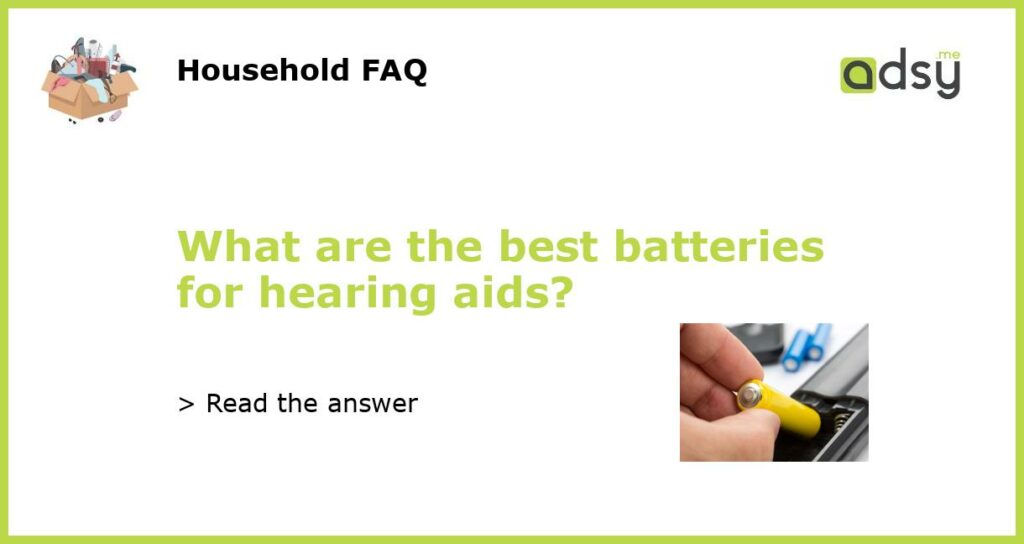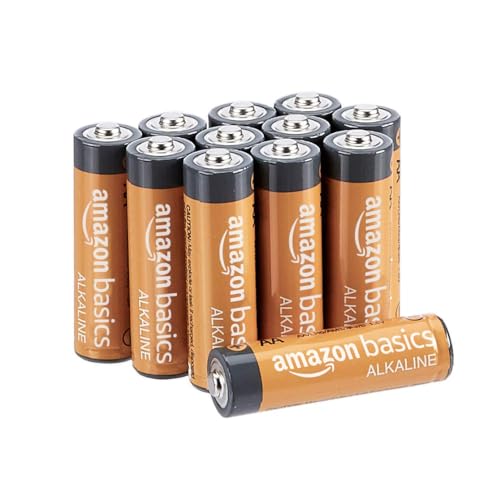The Importance of Choosing the Best Batteries for Hearing Aids
Hearing aids are a priceless tool for those with hearing loss, allowing them to communicate and connect with the world around them. However, finding the best batteries for hearing aids is essential to ensure their proper functioning and longevity.
When it comes to hearing aid batteries, there are several factors to consider, such as battery life, compatibility, size, and cost. By understanding these factors and considering your specific needs, you can find the perfect batteries for your hearing aids.
Battery Life: Prolonging the Lifespan of Your Hearing Aid
Battery life is a crucial factor to consider when choosing the best batteries for your hearing aids. A longer battery life means fewer battery changes, reducing the hassle and cost of constantly replacing them. Additionally, longer-lasting batteries can provide peace of mind, knowing that your hearing aids won’t unexpectedly lose power in critical situations.
Various hearing aid batteries offer different levels of longevity. Zinc-air batteries, for example, are commonly used due to their long-lasting performance. These batteries utilize oxygen from the air to power the hearing aid, allowing for a longer lifespan. Lithium-ion rechargeable batteries are another option, offering extended operating times and the convenience of rechargeability.
Compatibility: Ensuring the Right Fit for Your Hearing Aid
Before purchasing batteries for your hearing aids, it’s essential to ensure their compatibility. Hearing aids come in different sizes and require specific battery sizes to operate effectively. The most common battery sizes are 10, 312, 13, and 675, with each size serving a different hearing aid model.
It’s crucial to consult your hearing healthcare professional or refer to your hearing aid’s user manual to determine the correct battery size. Using the wrong battery size can result in poor performance or even damage to your device.
Size Matters: Finding the Right Fit for Your Hearing Aid
The physical size of the battery is another important consideration. Smaller hearing aids generally require smaller batteries, while larger models may accommodate larger batteries with longer lifespans. For instance, a Behind-The-Ear (BTE) hearing aid may utilize a larger battery compared to an In-The-Ear (ITE) hearing aid due to its increased power consumption.
It’s essential to choose a battery size that fits well within your hearing aid without any difficulty in changing or inserting the battery. A proper fit ensures the battery will securely power your device without the risk of it falling out during use.
Cost and Availability: Factors to Consider for Long-Term Use
Cost-effectiveness and availability are crucial factors to consider when choosing batteries for your hearing aids. Some battery sizes and brands may be more readily available, making it easier to find replacements when needed. Additionally, it’s worth considering the cost of batteries over time, as this is an ongoing expense throughout the lifespan of your device.
While it may be tempting to opt for cheaper batteries, it’s important to choose brands that have proven reliability and longevity. Investing in reputable battery brands can help prevent unexpected failures and reduce the overall cost of constantly purchasing batteries.
Choosing the best batteries for hearing aids is vital for ensuring optimal performance and longevity. Consider factors such as battery life, compatibility, size, and cost when selecting batteries for your specific hearing aid model. By considering these factors, you can find the right batteries that meet your needs and provide consistent power for your hearing aids.






